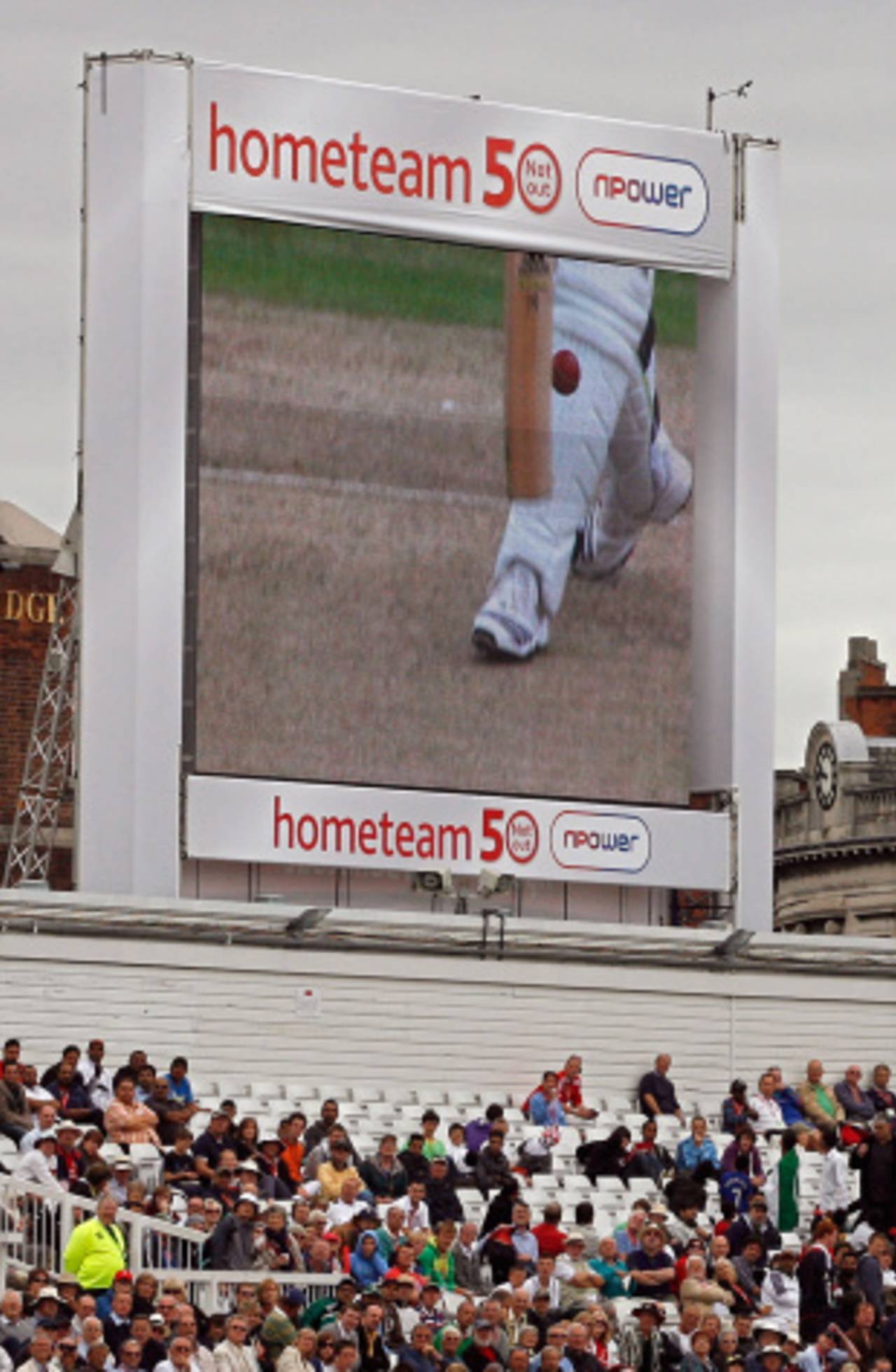If the BCCI had more faith in its hand-picked television commentators and allowed them to discuss the DRS on air, it might discover there are some like-minded souls out there - i.e. people who are equally sceptical of the system.
If ever evidence was needed that there are flaws in the Decision Review System, they were amply provided in the
SCG one-dayer between Australia and Sri Lanka. With Michael Clarke having used up Australia's sole review, David Warner and Moises Henriques were then ambushed by incorrect umpiring decisions. Both batsmen got healthy inside edges to deliveries but were adjudged lbw.
Those SCG examples contradict the assertion of Dave Richardson, who was the ICC general manager when he spoke to a gathering of Channel 9 commentators at the Gabba prior to the 2009-10 series against West Indies. He told the commentators: "The DRS is designed to eradicate howlers and get the right decision." At the time I thought, how can you guarantee the correct decision will be reached when there are a finite number of unsuccessful reviews?
I suspected the individual aspect of a team game would ensure the bulk of the reviews would be utilised by top-order batsmen. As former Australian prime minister Paul Keating shrewdly observed, "Always bet on self-interest because you know it's a goer."
Little did I realise that the DRS would also become more of a tactical ploy than a review system. In the same way that West Indies in their heyday slowed the over rate down on the odd occasion they were in danger of losing a game, the DRS is often used as an unwarranted trick in strategy. Umpiring decisions and over rates should never be a part of cricket's tactical fabric.
The DRS, in the unreliable hands of players, is being used more for 50-50 decisions than to eradicate howlers. If a team's best batsman is at the crease and the side is in trouble, a review will almost always result - more a case of self-preservation than any highly principled attempt to be a part of improving the umpiring standard.
The constant reviewing of 50-50 decisions can only undermine the confidence of the umpires, and more importantly, is likely to change their decision-making thought process.
There never has been, nor will there ever be, a case where a 50-50 decision causes animosity on the cricket field. Players are conditioned to accept that one day these decisions will go your way and the next they'll go against you. What does cause animosity on the field is the absolute howler that can change the course of a match. Andrew Symonds being given not out to an obvious caught-behind early in his innings and then going on to score 162 not out
in Sydney is a classic example of a howler that caused great animosity on the field. It also led to a terse retort from the normally equitable Anil Kumble at the after-match press conference.
One of the founding principles of the game is also flouted when the DRS is put in the hands of players. As kids we were told the umpire is right, so always accept his decision without question.
The DRS also interrupts the flow of the game. Some of the more exciting moments, like the celebration of a crucial wicket or a brilliant catch, are put on hold, never to be recaptured, as the review process grinds to a conclusion. It would be a case of criminal interference to interrupt the celebration of a hat-trick with a torturous review.
Surely it's time to put any review system in the hands of the umpires so that it stops being a tactic, rids the game of the howler, and on most occasions, brings a satisfactory outcome. Trying to devise a system that produces the correct decision is not possible at the moment (and probably never will be) and attempting to achieve that aim robs the game of one part of the delightfully enticing human element.
It's time to seriously rethink the DRS. It's a topic that should involve a lot of discussion and input from ex-players and some robust debate on commentary.
Former Australia captain Ian Chappell is now a cricket commentator for Channel 9, and a columnist
